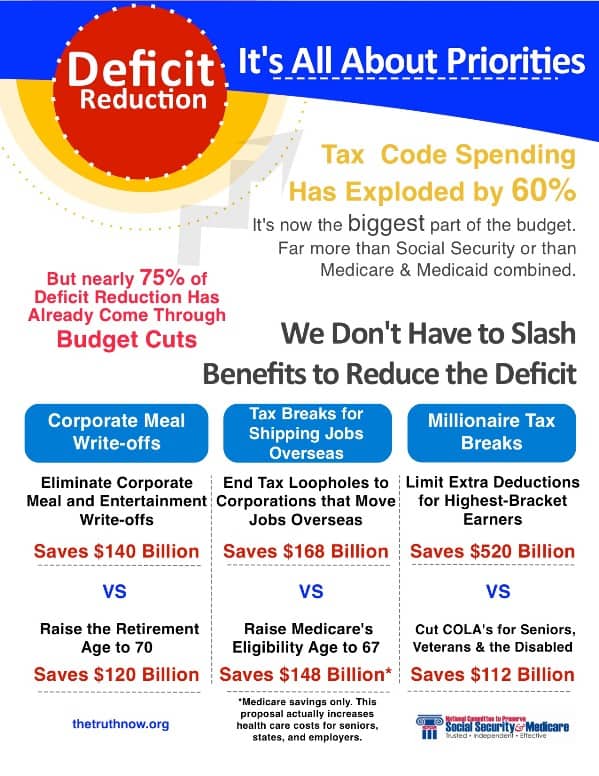The billion dollar anti-Social Security and Medicare lobby has been working in overdrive for years to convince Washington that the only way to cut deficits is to cut middle-class benefits. They really don’t want to talk about the true drivers of our budget deficits, and they usually completely ignore the long-term impact that sky-rocketing health care costs (not just in Medicare) have on our economy. They certainly don’t want to acknowledge current trends which show a slowing in health cost growth. To do so, would completely undermine their “sky is falling” strategy. Economist Jared Bernstein explains:
While our approach at CBPP has been to point out what’s needed to stabilize the debt over the next decade—and stress that the extent of further-out-in-time budget pressures depend on health care costs and the impact of new policies to curb them—the basic approach taken here (in the Peterson report) is to get people worried enough about post-2022 projections that they’re willing to pass “entitlement reforms” now.
That is both unwise and unnecessary. First, as mentioned, we need to see the trajectory of health costs that have slowed in recent years. If that sticks, the forecasts will be improved.
Second, this Congress is the wrong Congress with which to engage in such reforms. They cannot be trusted to do so in such a way as to protect economically vulnerable beneficiaries. They will fix social insurance by breaking social insurance.
That “we have to destroy it to fix it” approach is most evident in the Wall Street and CEO arm of the anti-entitlement lobby called Fix the Debt and bolstered by the Business Roundtable. These multi-millionaire CEO’s (many representing companies which pay zero in corporate taxes) are preaching “shared sacrifice” while also fighting to protect their trillion dollars in millionaire tax breaks and corporate boondoggles.
We don’t have to slash benefits to middle class families to reduce the deficit. Here is a breakdown of just some of the common sense options America’s multimillionaire CEO’s and Wall Street don’t want to talk about:



